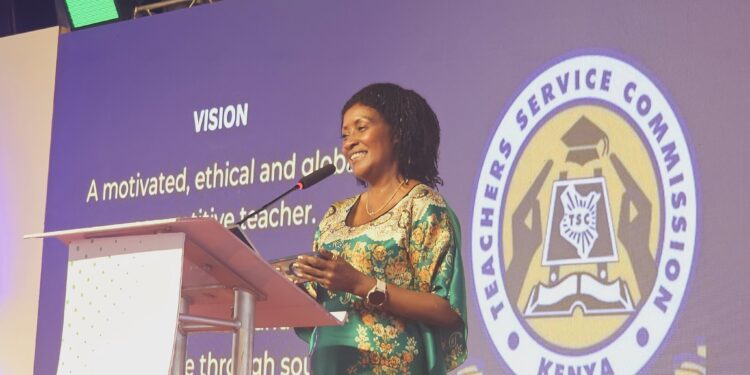
The Teachers Service Commission (TSC) is gearing up for a significant change as it looks to appoint a new Commission Secretary and CEO. With Dr. Nancy Macharia’s term wrapping up in June, a new leader must be in place by July 1, 2025, according to the TSC Act 2012.
This transition is crucial, and the process aims to be transparent and merit-based, although the Act doesn’t specify the exact timeline or steps. The current leadership, headed by Chairperson Dr. Jamleck Muturi John, is tasked with ensuring a smooth transition by June 30, 2025.
Starting in April, the recruitment process is expected to unfold over three months. This includes advertising the position, reviewing applications, shortlisting candidates, conducting interviews, and making the final selection. Dr. Macharia will begin her terminal leave in April, which aligns with the start of the search for her successor.
The role is likely to attract interest from senior education professionals, including school principals and Ministry of Education officials. Many believe an internal candidate might be favored due to the TSC’s complex operations.
The appointment could also draw political attention, given TSC’s status as East Africa’s largest employer. There is speculation that President William Ruto might propose a candidate from the Public Service Commission’s pool for Permanent Secretary roles, as the TSC CEO position carries similar weight.
Qualifications and Appointment Criteria
According to the TSC Act 2012, the new CEO must be a Kenyan citizen, hold an education degree from a recognized university, and have at least ten years of relevant experience. This role involves strategic leadership and administrative duties and is a five-year term that can be renewed once. Removal from office can only occur due to incompetence or misconduct, with the right to a fair hearing.
Dr. Macharia’s time as CEO has been marked by significant reforms and digital advancements. She’s been praised for recruiting over 100,000 teachers and implementing key reforms, though some policies have faced criticism.
Appointed in 2015, Dr. Macharia was the first woman to hold the CEO position. Her career began as an assistant teacher and progressed to Deputy Principal at Kianderi Girls’ Secondary School. She holds a Doctorate in Education and has been awarded the Order of the Grand Warrior (OGW).
During her tenure, Dr. Macharia navigated complex relationships with teacher unions, initially marked by conflicts over CBAs and career progression policies. However, relations improved under new union leadership, allowing for dialogue on salary and promotions. Some policies, like teacher delocalization, faced strong opposition until they were repealed.
Dr. Macharia led the digitization of TSC operations, enhancing payroll processing and service delivery. This transformation has been praised for improving confidentiality and efficiency.
As the search for a new CEO begins, there are calls for reforms that address career progression and restore trust within TSC. Union leaders emphasize the need for consultative leadership and depoliticized operations. Enhancements in working conditions and structured career progression are also sought to maintain morale and efficiency.
Dr. Macharia leaves behind a legacy of both achievements and debates. As TSC prepares for new leadership, the focus is on a smooth transition that builds on past successes. The education community is eager to see a leader who will promote inclusivity, transparency, and progressive management reforms.








